This week the 3rd Annual Meeting of the Global Consortium for Public Health (GCPHR) takes place at the University of Huddersfield on June 25th-26th. GCPHR 2025 was attended by people involved in global health research from the UK, India, Nepal, Qatar, and Ghana. Building on the success of the 2023 inaugural two-day meeting and the second annual event in 2024, the 2025 meeting brought together a diverse community of health researchers, practitioners, policy-makers and global health leaders. This initiative has as its main aim to facilitate the exchange of knowledge, promote innovation, and strengthen international collaboration.
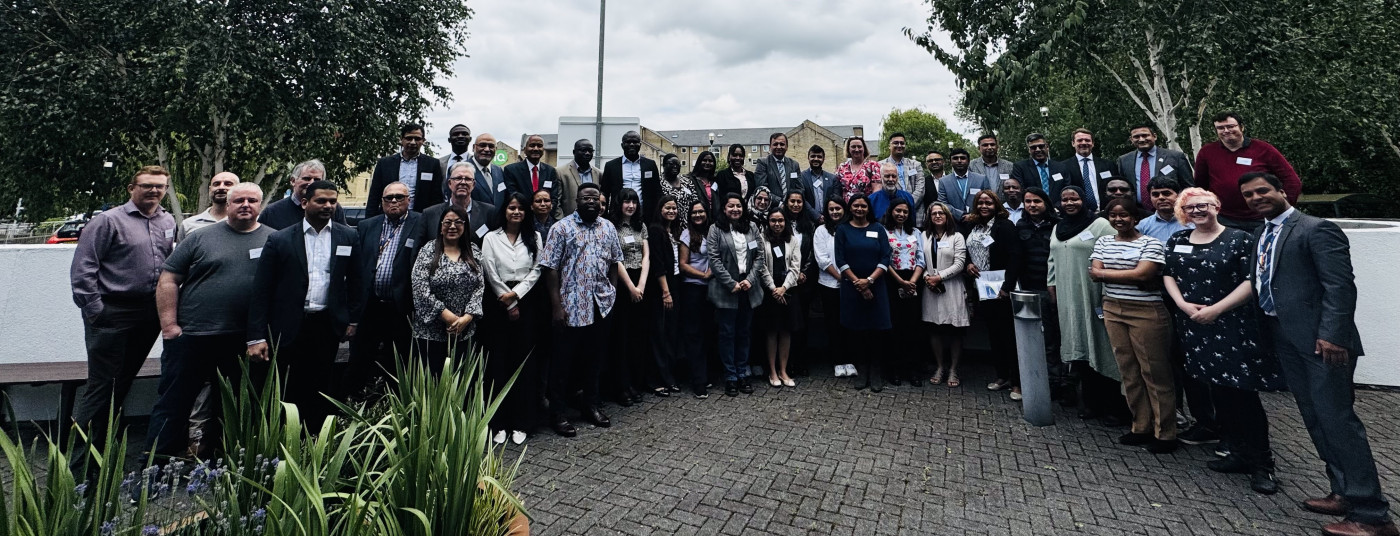 Bournemouth University academics have been involved since GCPHR’s inception, and this year Prof. Edwin van Teijlingen from the Centre for Midwifery & Women’s Health (CMWH) contributed to a panel discussion on ‘Innovating Tomorrow: National and Global Research in the Age of AI’. He presented around the pros and cons of Interdisciplinary Research in Global Health. Together with colleagues Edwin has published several papers on interdisciplinary research [1-3] and collaborative writing of research output with a range of colleagues from different disciplines [4-5].
Bournemouth University academics have been involved since GCPHR’s inception, and this year Prof. Edwin van Teijlingen from the Centre for Midwifery & Women’s Health (CMWH) contributed to a panel discussion on ‘Innovating Tomorrow: National and Global Research in the Age of AI’. He presented around the pros and cons of Interdisciplinary Research in Global Health. Together with colleagues Edwin has published several papers on interdisciplinary research [1-3] and collaborative writing of research output with a range of colleagues from different disciplines [4-5].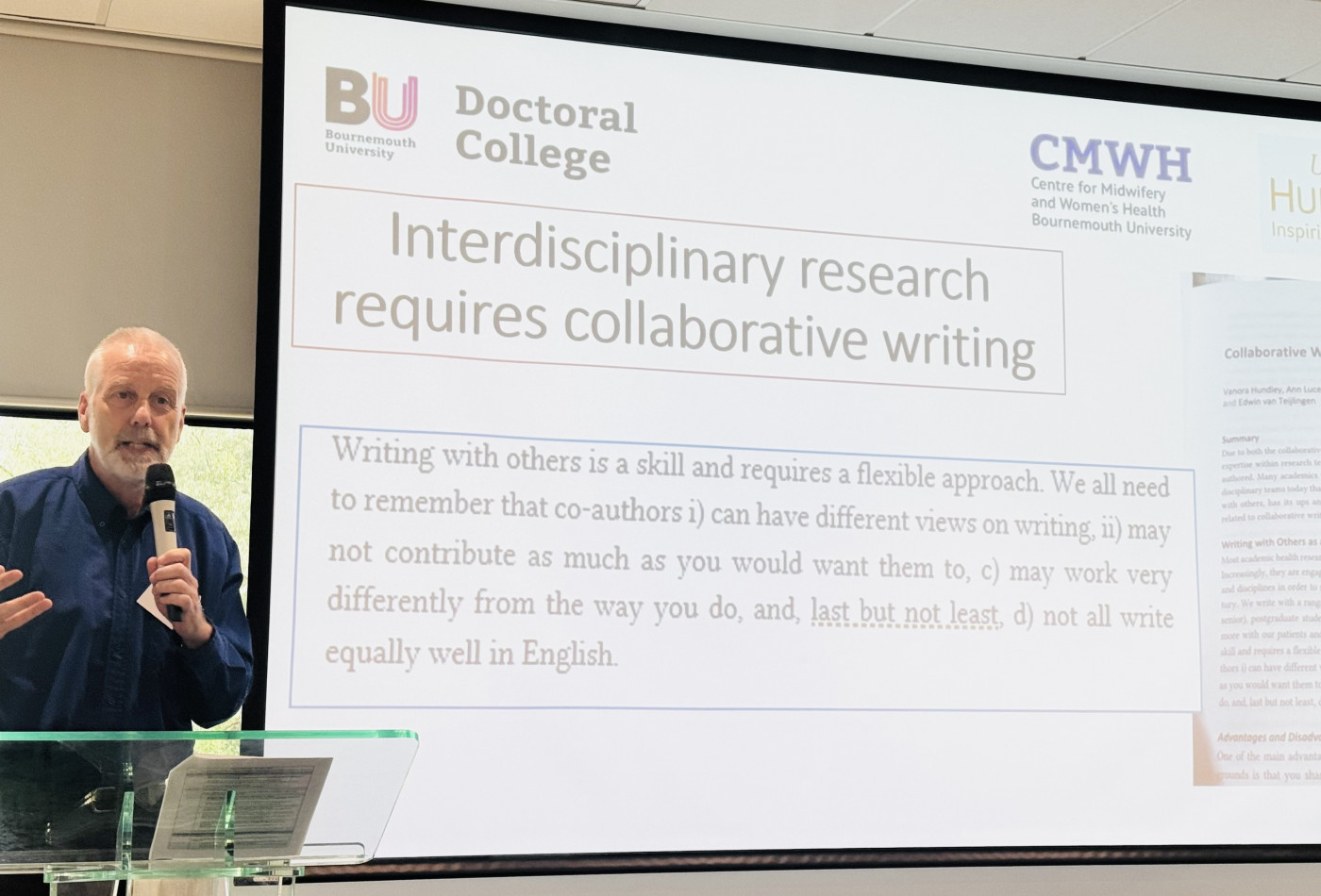
Prof. Padam Simkhada from the University of Huddersfield (and Visiting Faculty in BU’s Faculty of Health & Social Sciences outlined the recently awarded British Academy grant on ‘Evidence-based Policy-Making in Nepal’. The latter project, which includes BU’s Dr. Pramod Regmi as co-investigator, also has policy-makers in Nepal as collaborators, giving it great potential to become a REF Impact Case-Study.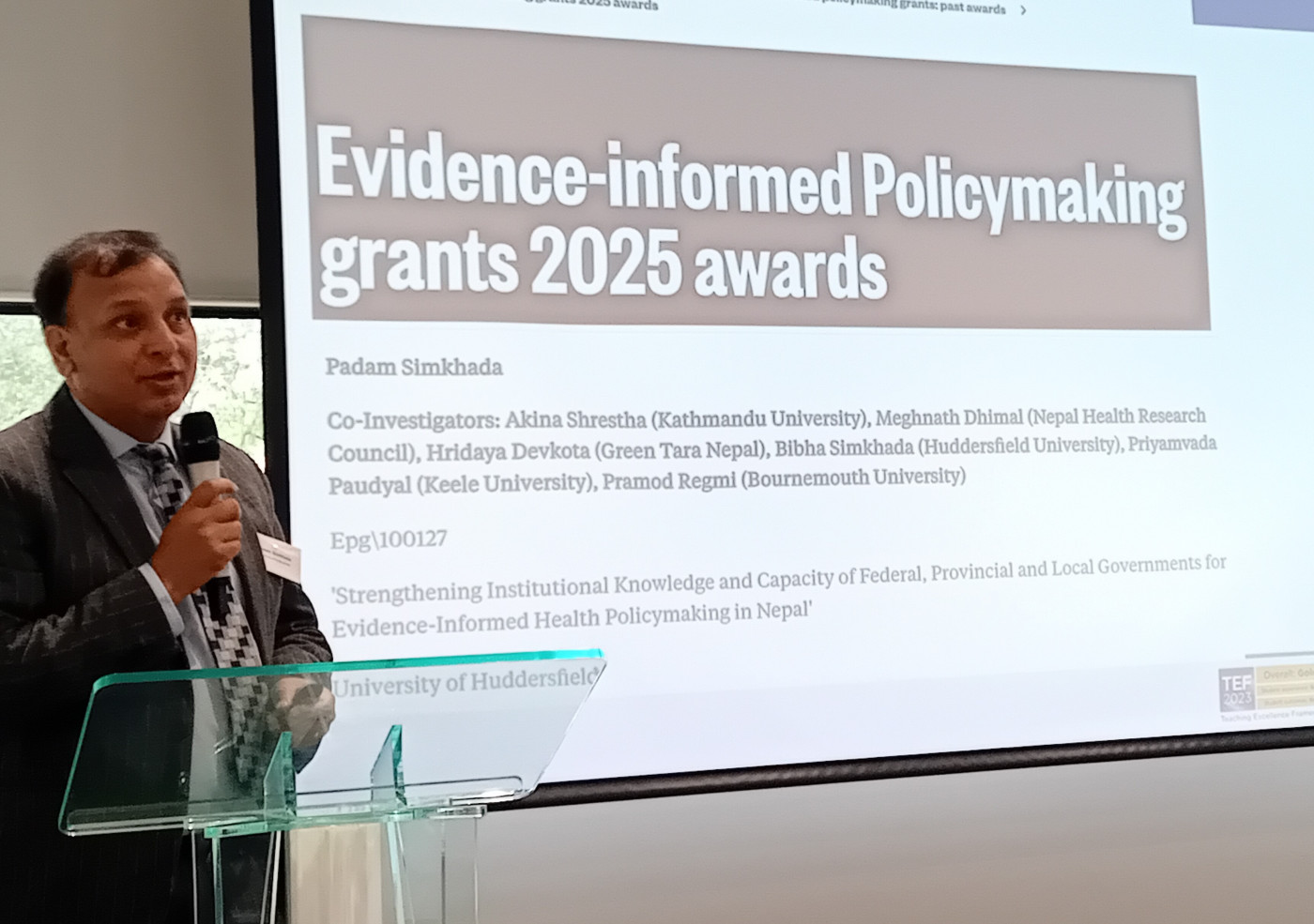
References:
- Shanker, S., Wasti, S.P., Ireland, J., Regmi, P., Simkhada, P., van Teijlingen, E. (2021) The Interdisciplinary Team Not the Interdisciplinarist: Reflections on Interdisciplinary Research, Europasian Journal of Medical Sciences 3(2): 1-5. https://doi.org/10.46405/ejms.v3i2.317
- van Teijlingen, E., Regmi, P., Adhikary, P., Aryal, N., Simkhada, P. (2019). Interdisciplinary Research in Public Health: Not quite straightforward. Health Prospect, 18(1), 4-7. https://doi.org/10.3126/hprospect.v18i1.19337
- Wasti, S. P., van Teijlingen, E., Simkhada, P. (2020) Public Health is truly interdisciplinary. Journal of Manmohan Memorial Institute of Health Sciences, 6(1):21-22.
- Harvey, O., van Teijlingen, A., Regmi, P.R., Ireland, J., Rijal, A., van Teijlingen, E.R. (2022) Co-authors, colleagues, and contributors: Complexities in collaboration and sharing lessons on academic writing, Health Prospect 21(1):1-3. https://www.nepjol.info/index.php/HPROSPECT/article/view/39320/31432
- Hundley, V., Luce, A., Simkhada, P., van Teijlingen, E. (2022) Collaborative Writing for Publication, In: Wasti, S.P., et al. (Eds.) Academic Writing and Publishing in Health & Social Sciences, Kathmandu, Nepal: Himal Books: 15-19.
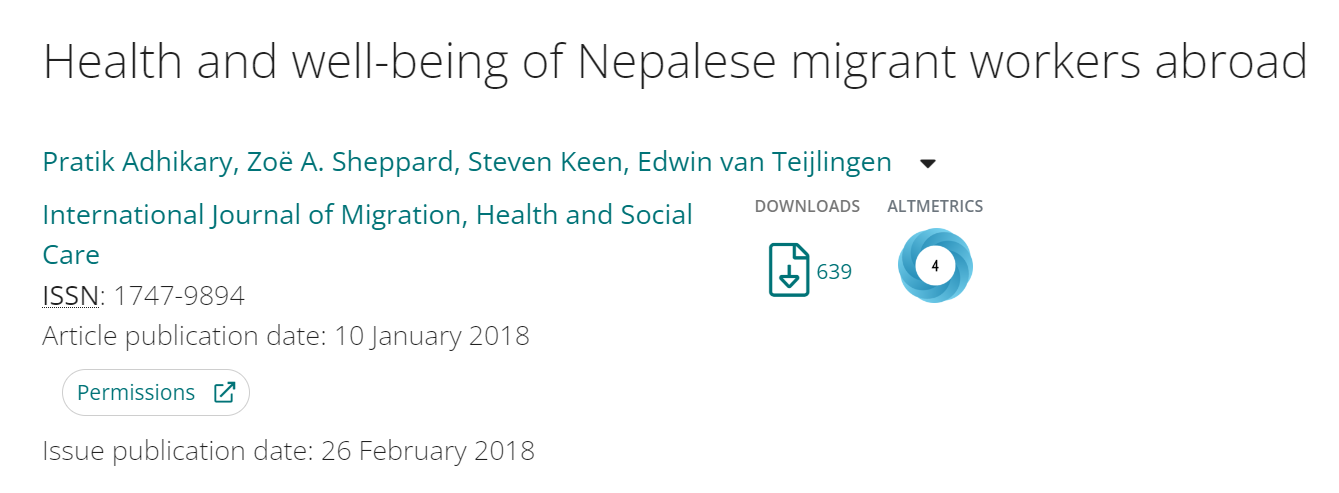
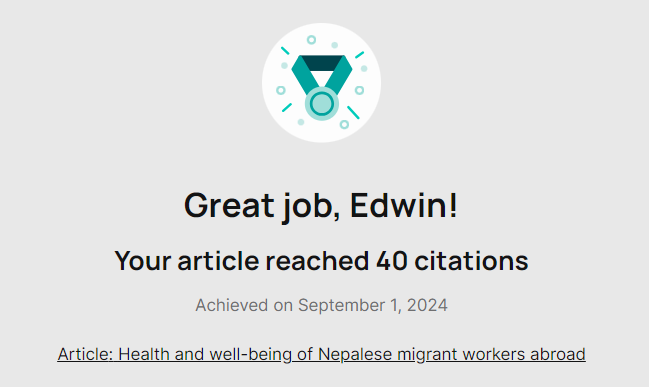
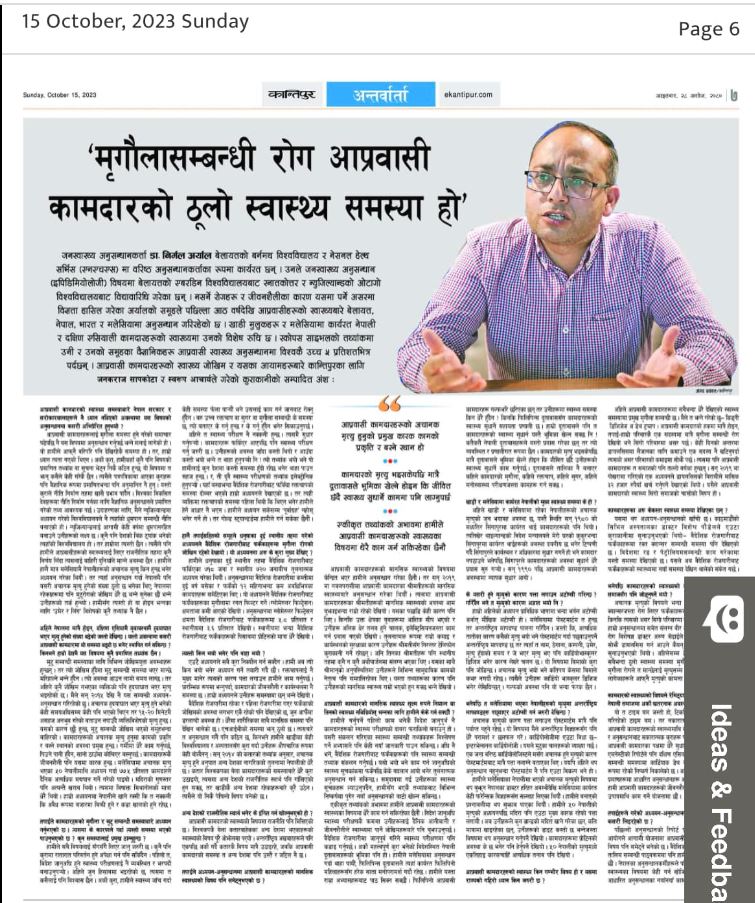
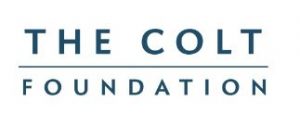

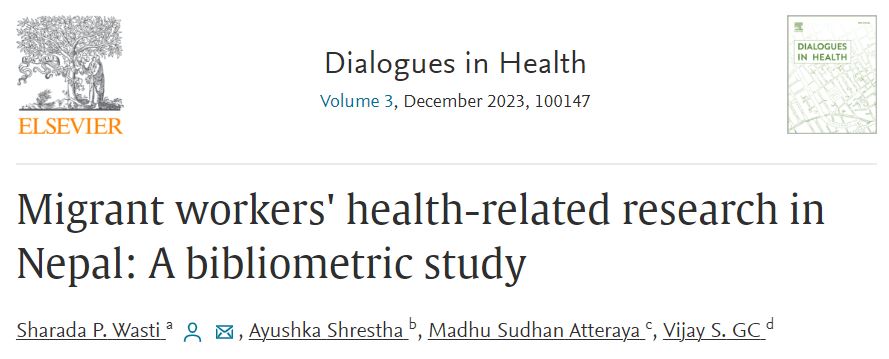
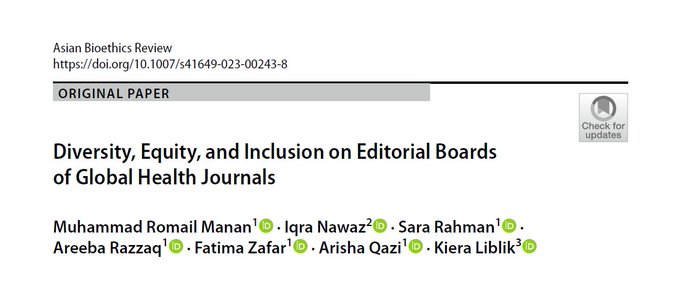
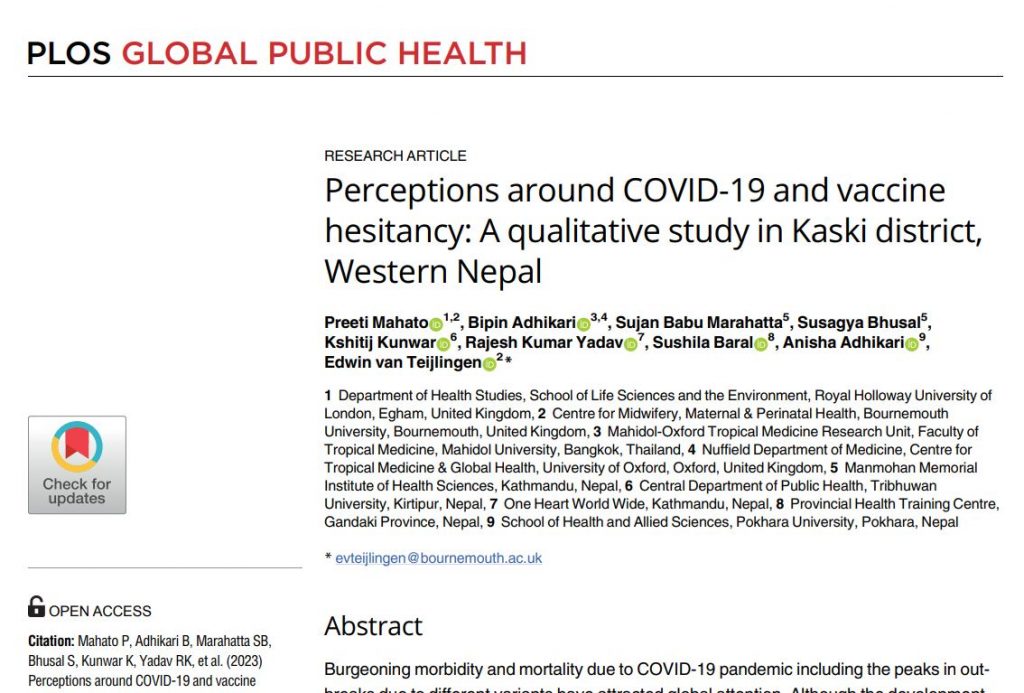
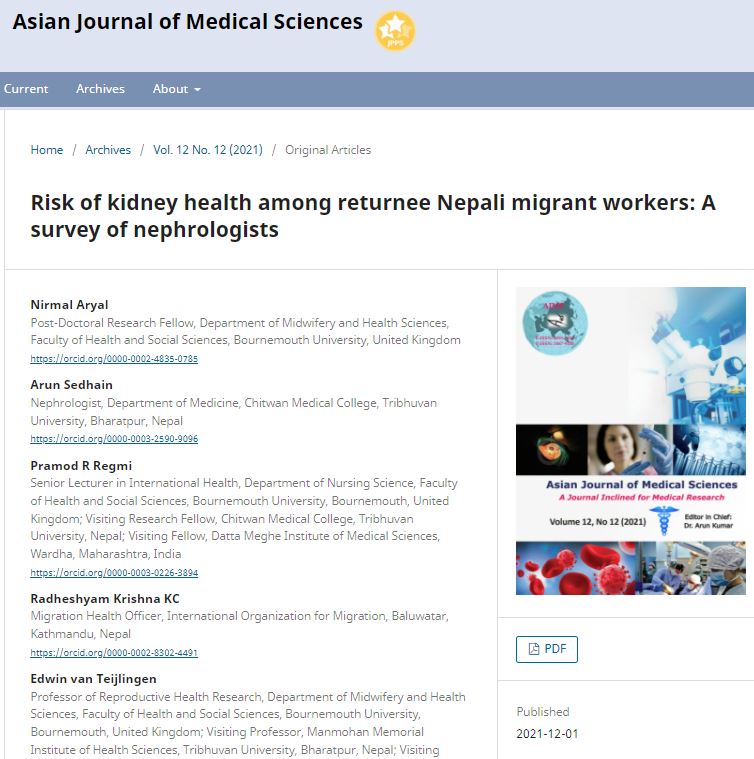
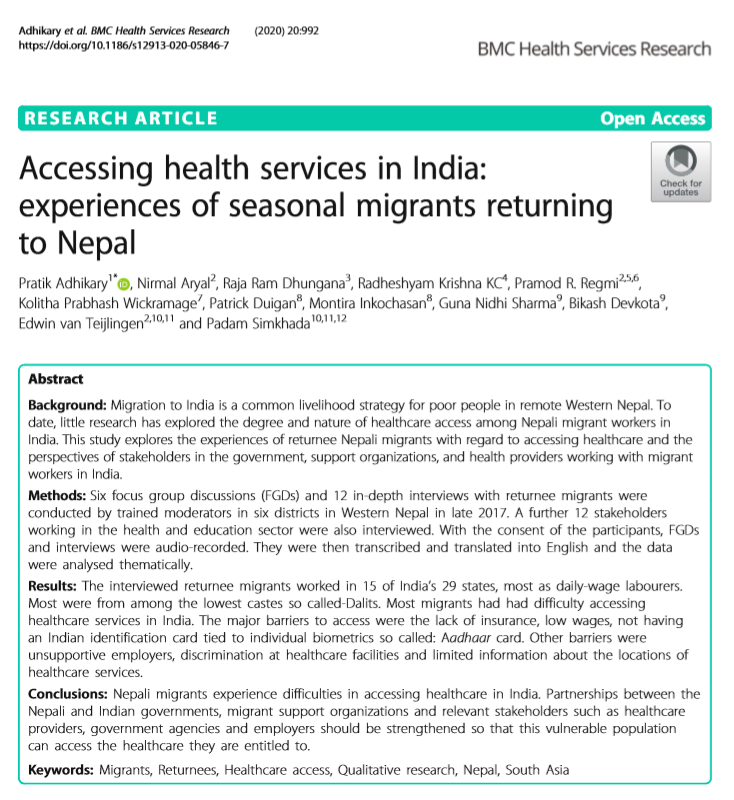

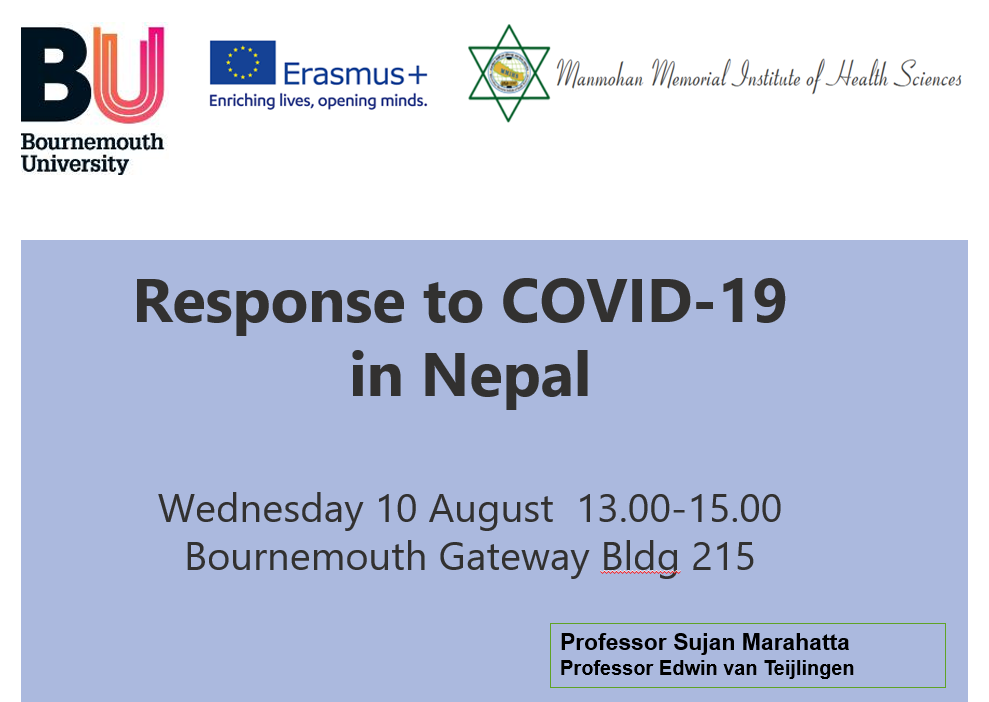
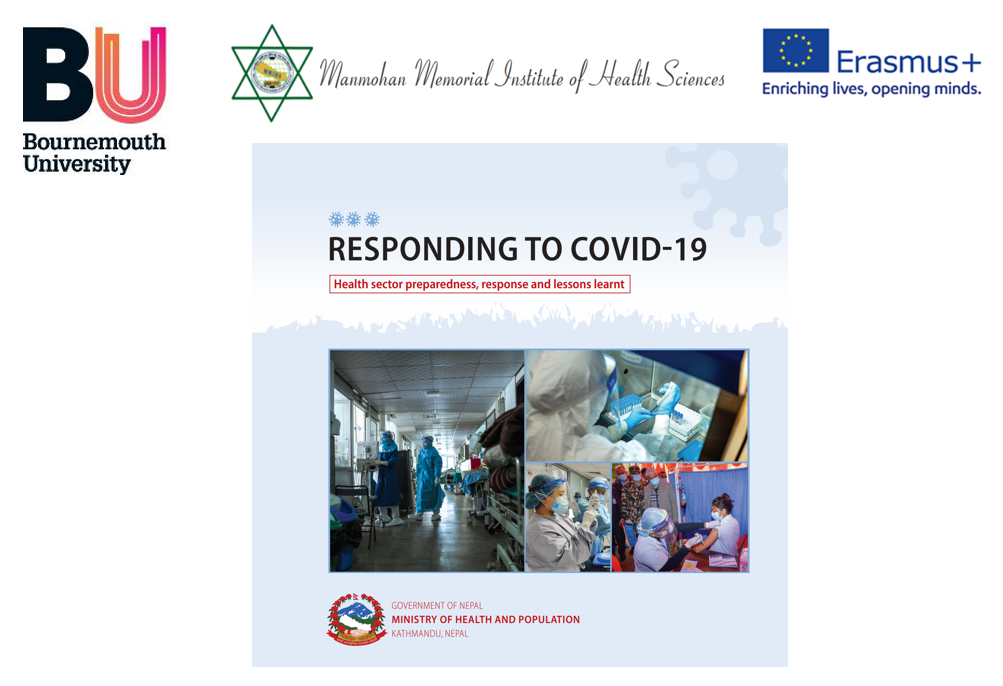

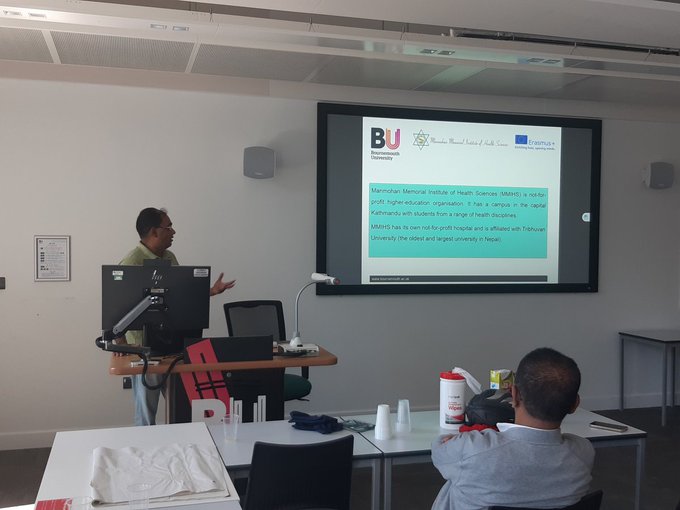


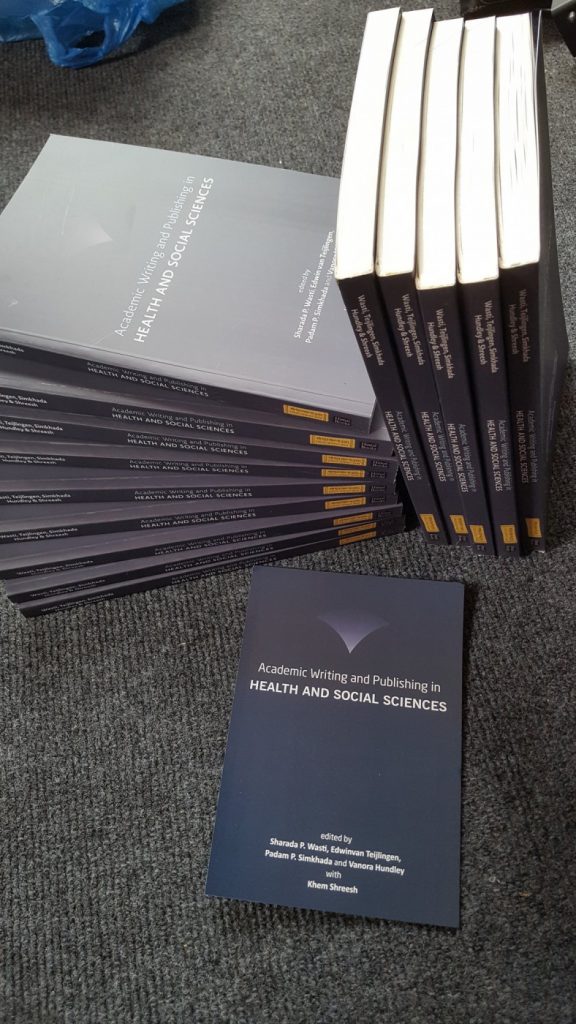
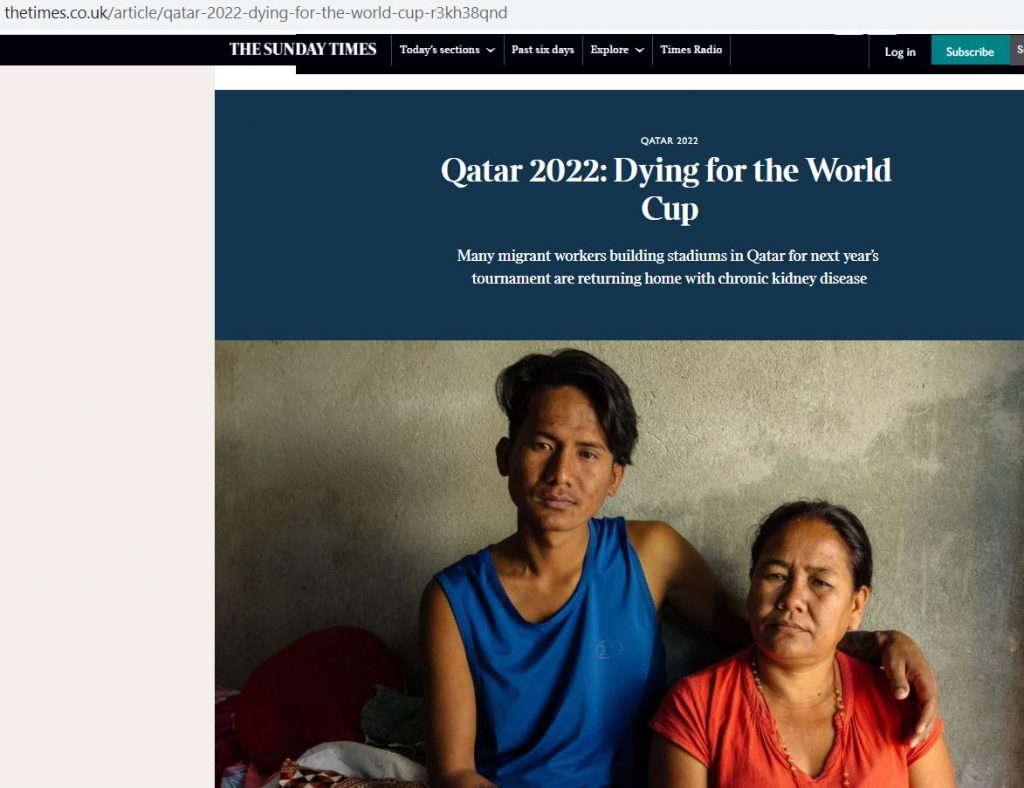

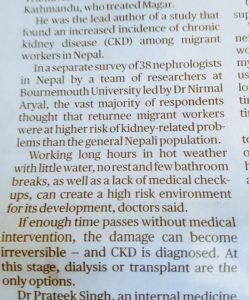
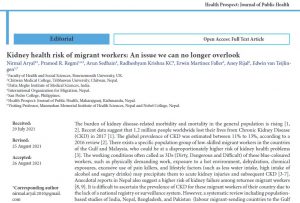
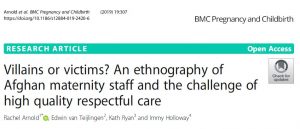

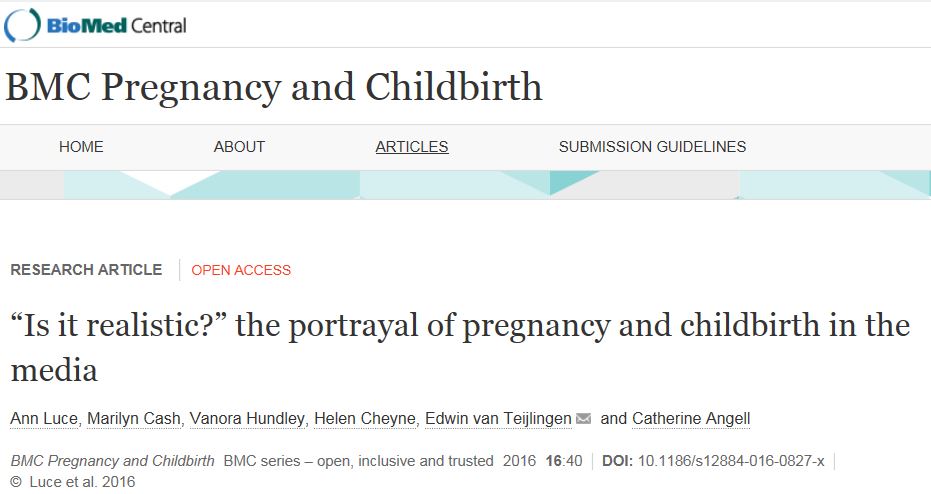




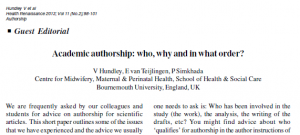
 Yesterday the Nepal Journal of Epidemiology published its latest issue which included the paper on ‘Post-Traumatic Stress Disorder among the Flood Affected Population in Indian Subcontinent’ [1]. This Short Communication is co-authored by Prof. Edwin van Teijlingen and two members of the Visiting Faculty in our Faculty of Health & Social Sciences, namely: Prof. Padam Simkhada and Dr. Brijesh Sathian. The Nepal Journal of Epidemiology is an Open Access journal hence this paper is freely available for anybody with internet access to read.
Yesterday the Nepal Journal of Epidemiology published its latest issue which included the paper on ‘Post-Traumatic Stress Disorder among the Flood Affected Population in Indian Subcontinent’ [1]. This Short Communication is co-authored by Prof. Edwin van Teijlingen and two members of the Visiting Faculty in our Faculty of Health & Social Sciences, namely: Prof. Padam Simkhada and Dr. Brijesh Sathian. The Nepal Journal of Epidemiology is an Open Access journal hence this paper is freely available for anybody with internet access to read.



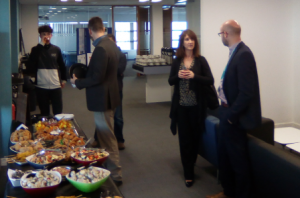
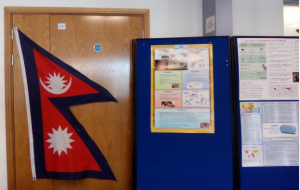
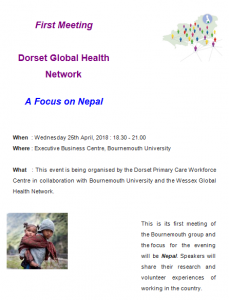
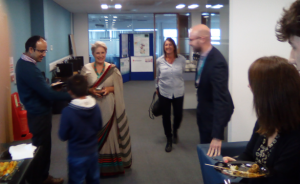
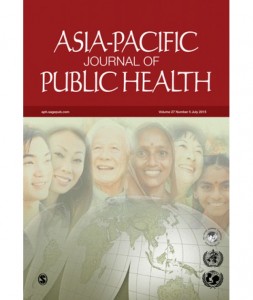 aths and many hundreds cases of injuries among Nepalese workers in these countries excluding India. For example, the Foreign Employment Promotion Board of Nepal recently reported that 1002 Nepalese migrant workers died in the 6 GCC countries and Malaysia in the last Nepalese calendar year, of which 357 (36%) were documented as cardiac related. However, in a quarter of deaths, the cause was unknown. Postmortem examination of migrant workers in many destination countries is not carried out and official records of the destination countries tend to record these deaths as being ‘from natural causes’. Information on underlying causes, such as heat stress on construction sites, is often not available.
aths and many hundreds cases of injuries among Nepalese workers in these countries excluding India. For example, the Foreign Employment Promotion Board of Nepal recently reported that 1002 Nepalese migrant workers died in the 6 GCC countries and Malaysia in the last Nepalese calendar year, of which 357 (36%) were documented as cardiac related. However, in a quarter of deaths, the cause was unknown. Postmortem examination of migrant workers in many destination countries is not carried out and official records of the destination countries tend to record these deaths as being ‘from natural causes’. Information on underlying causes, such as heat stress on construction sites, is often not available.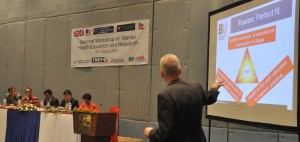
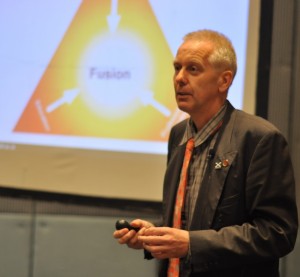













 Visiting Prof. Sujan Marahatta presenting at BU
Visiting Prof. Sujan Marahatta presenting at BU 3C Event: Research Culture, Community & Can you Guess Who? Friday 20 March 1-2pm
3C Event: Research Culture, Community & Can you Guess Who? Friday 20 March 1-2pm Beyond Academia: Exploring Career Options for Early Career Researchers – Online Workshop
Beyond Academia: Exploring Career Options for Early Career Researchers – Online Workshop UKCGE Recognised Research Supervision Programme: Deadline Approaching
UKCGE Recognised Research Supervision Programme: Deadline Approaching SPROUT: From Sustainable Research to Sustainable Research Lives
SPROUT: From Sustainable Research to Sustainable Research Lives ECR Funding Open Call: Research Culture & Community Grant – Apply now
ECR Funding Open Call: Research Culture & Community Grant – Apply now ECR Funding Open Call: Research Culture & Community Grant – Application Deadline Friday 12 December
ECR Funding Open Call: Research Culture & Community Grant – Application Deadline Friday 12 December MSCA Postdoctoral Fellowships 2025 Call
MSCA Postdoctoral Fellowships 2025 Call ERC Advanced Grant 2025 Webinar
ERC Advanced Grant 2025 Webinar Update on UKRO services
Update on UKRO services European research project exploring use of ‘virtual twins’ to better manage metabolic associated fatty liver disease
European research project exploring use of ‘virtual twins’ to better manage metabolic associated fatty liver disease